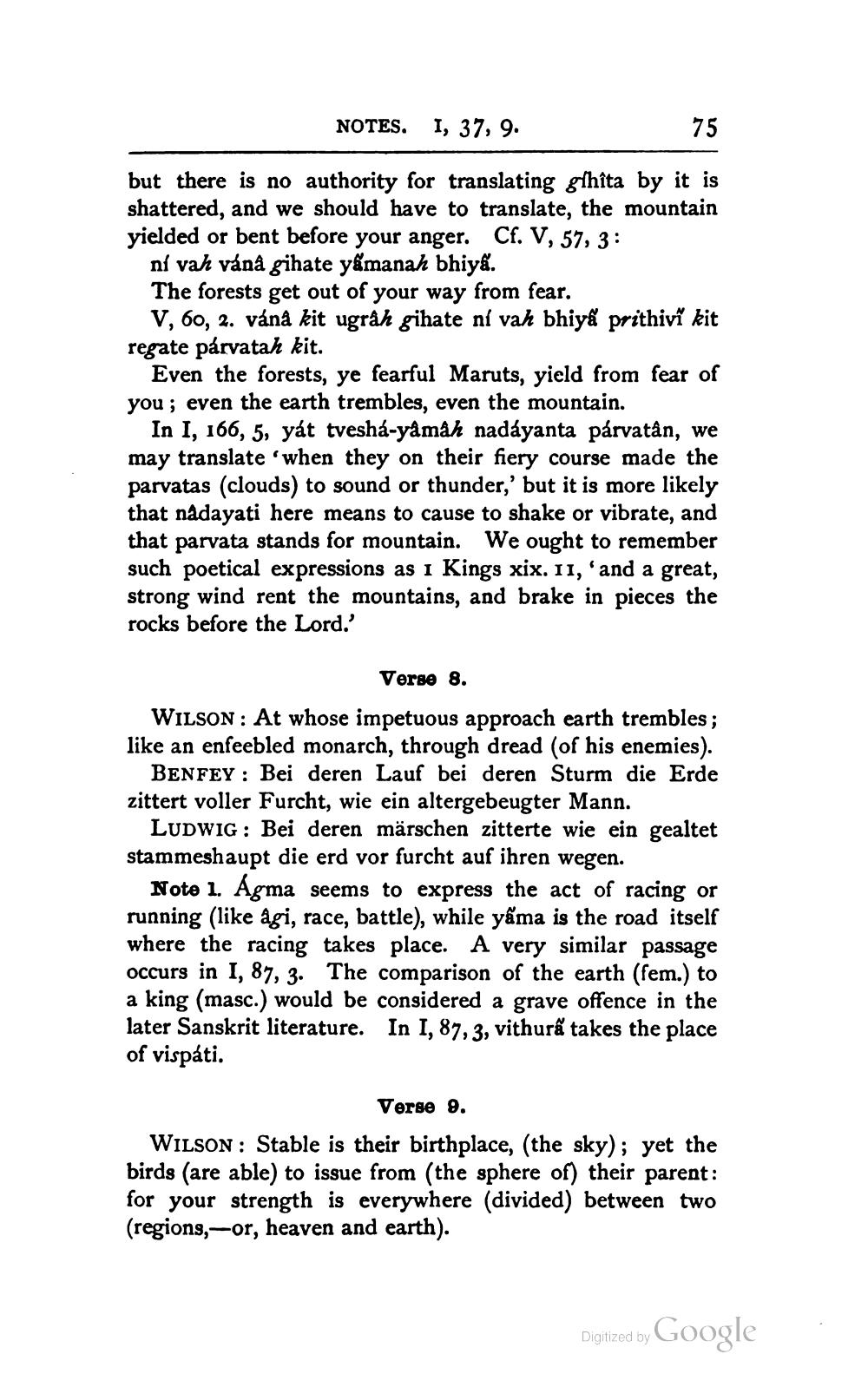________________
NOTES. I, 37, 9.
75
but there is no authority for translating gihîta by it is shattered, and we should have to translate, the mountain yielded or bent before your anger. Cf. V, 57, 3:
ni vah vánå gihate yamanah bhiya. The forests get out of your way from fear.
V, 60, 2. vánå kit ugråh gihate ni vah bhiya prithivi kit regate párvatah kit.
Even the forests, ye fearful Maruts, yield from fear of you ; even the earth trembles, even the mountain.
In I, 166, 5, yát tvesha-yamåh nadáyanta párvatân, we may translate 'when they on their fiery course made the parvatas (clouds) to sound or thunder,' but it is more likely that nadayati here means to cause to shake or vibrate, and that parvata stands for mountain. We ought to remember such poetical expressions as 1 Kings xix. 11, 'and a great, strong wind rent the mountains, and brake in pieces the rocks before the Lord.
Verse 8.
WILSON: At whose impetuous approach earth trembles ; like an enfeebled monarch, through dread (of his enemies).
BENFEY : Bei deren Lauf bei deren Sturm die Erde zittert voller Furcht, wie ein altergebeugter Mann.
LUDWIG : Bei deren märschen zitterte wie ein gealtet stammeshaupt die erd vor furcht auf ihren wegen.
Note 1. Agma seems to express the act of racing or running (like agi, race, battle), while yẩma is the road itself where the racing takes place. A very similar passage occurs in I, 87, 3. The comparison of the earth (fem.) to a king (masc.) would be considered a grave offence in the later Sanskrit literature. In I, 87,3, vithurã takes the place of vispáti.
Verse 9. WILSON: Stable is their birthplace, (the sky); yet the birds (are able) to issue from (the sphere of) their parent: for your strength is everywhere (divided) between two (regions,-or, heaven and earth).
Digitized by
Digitized by Google




